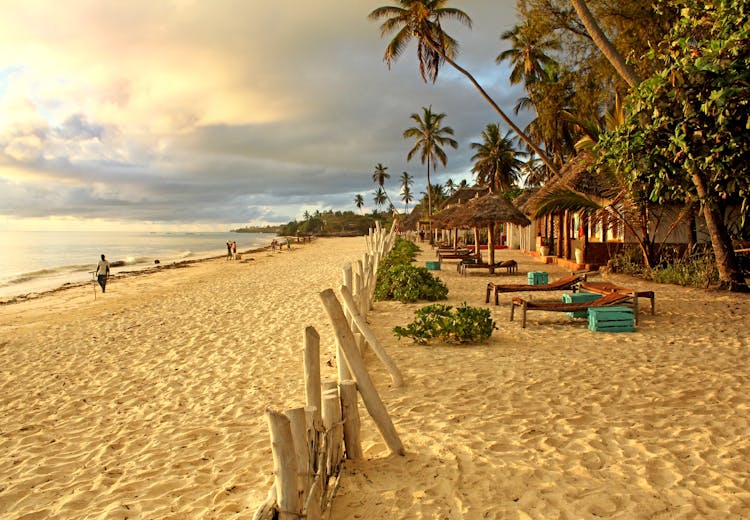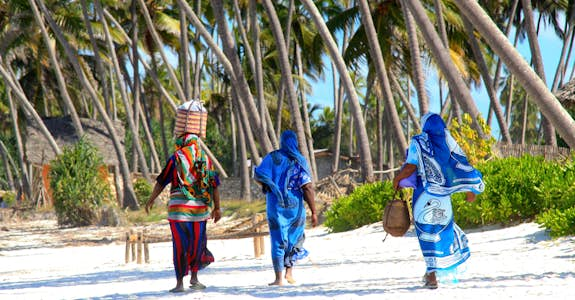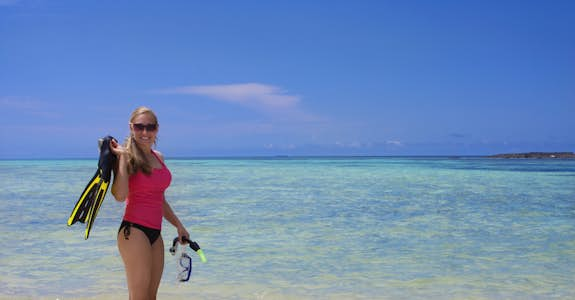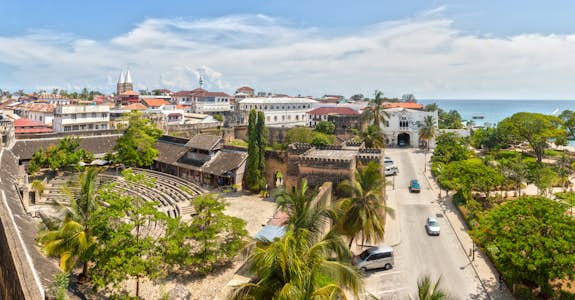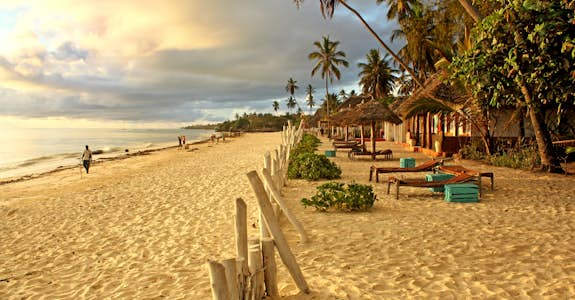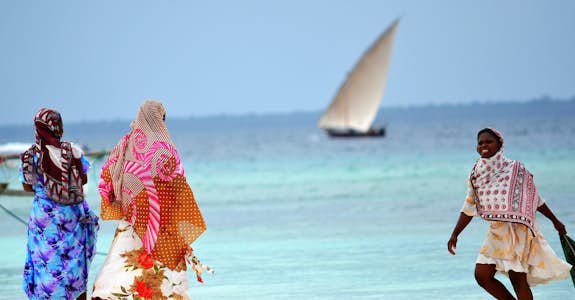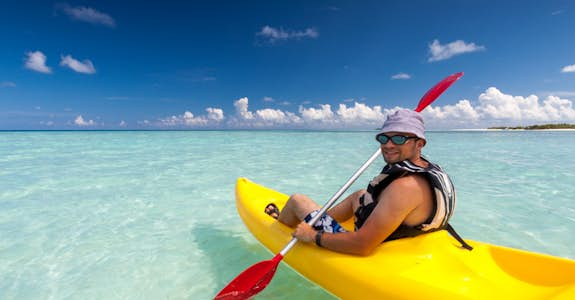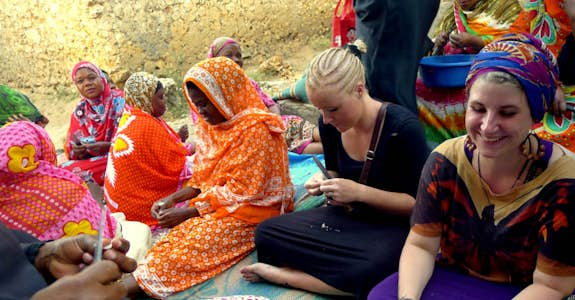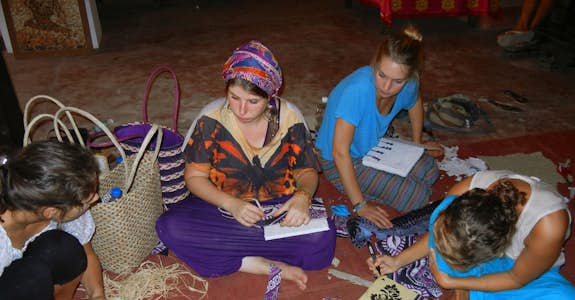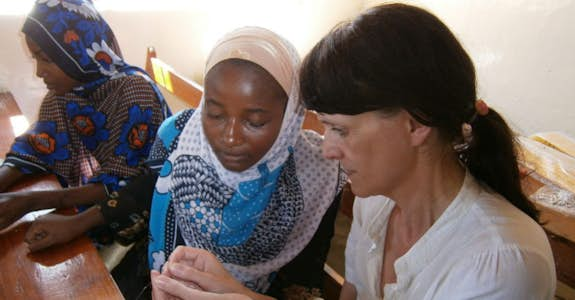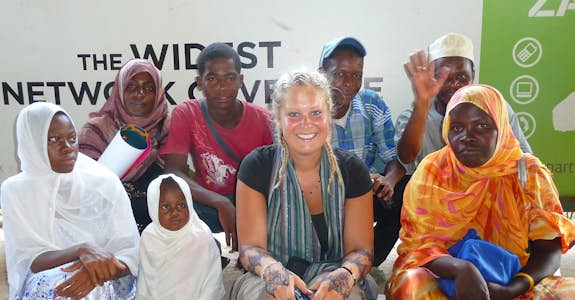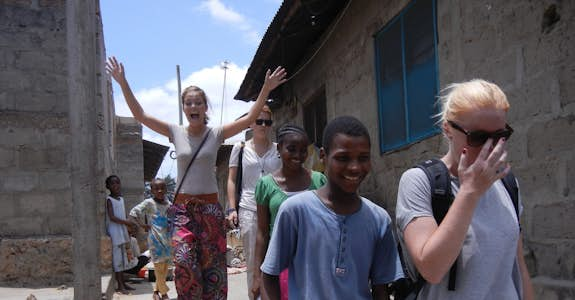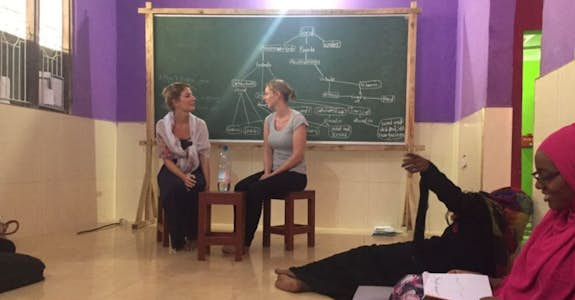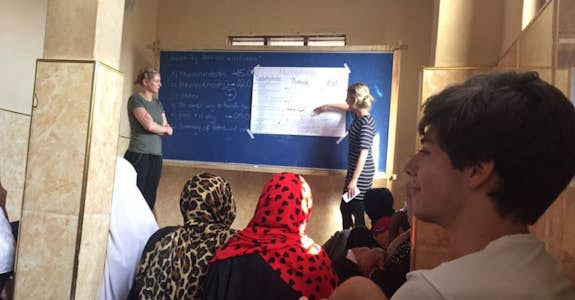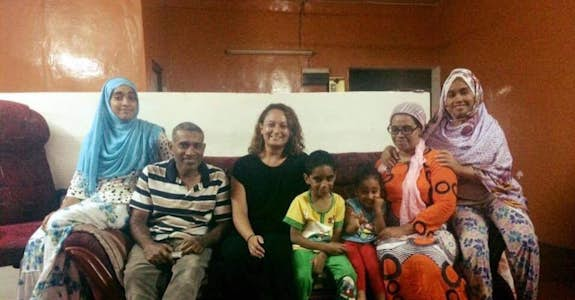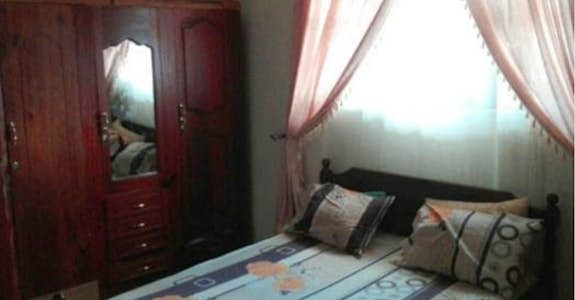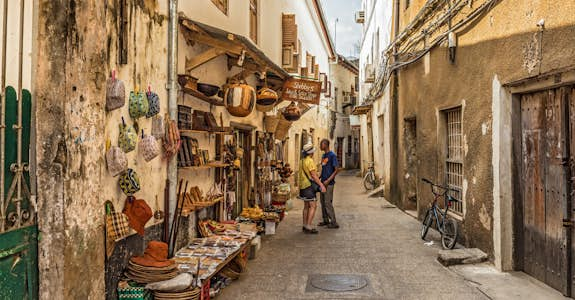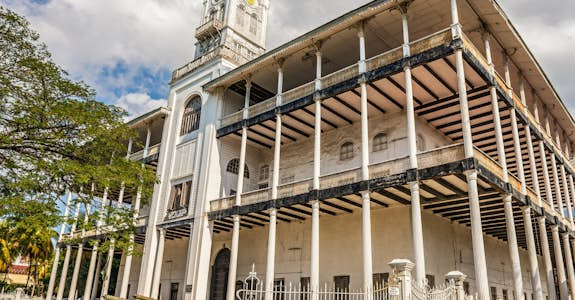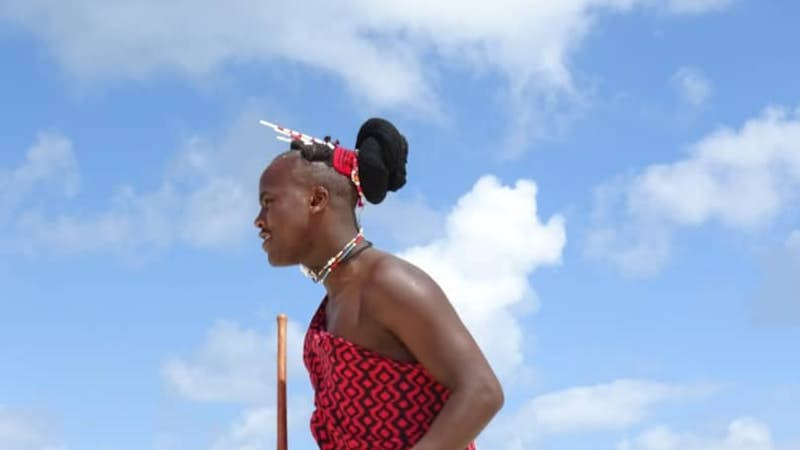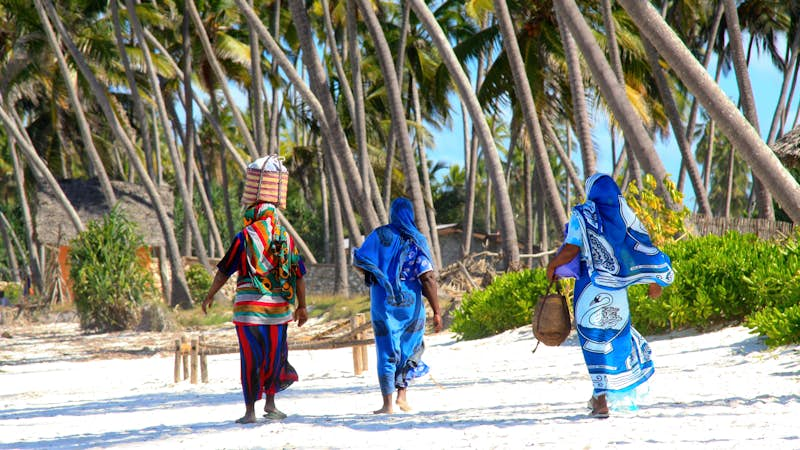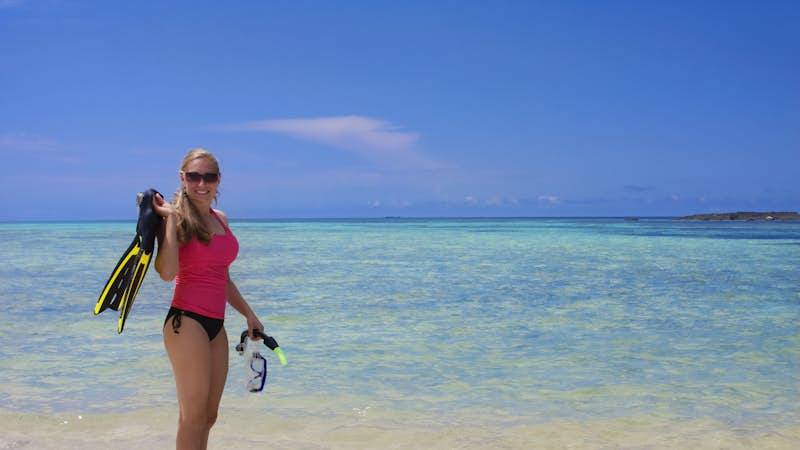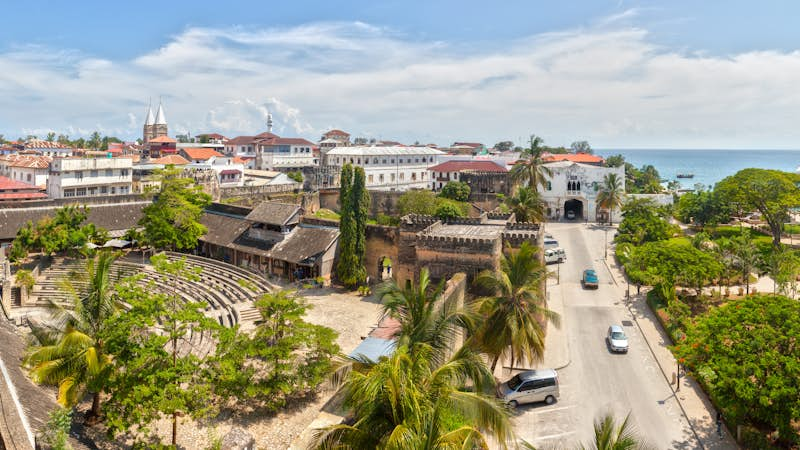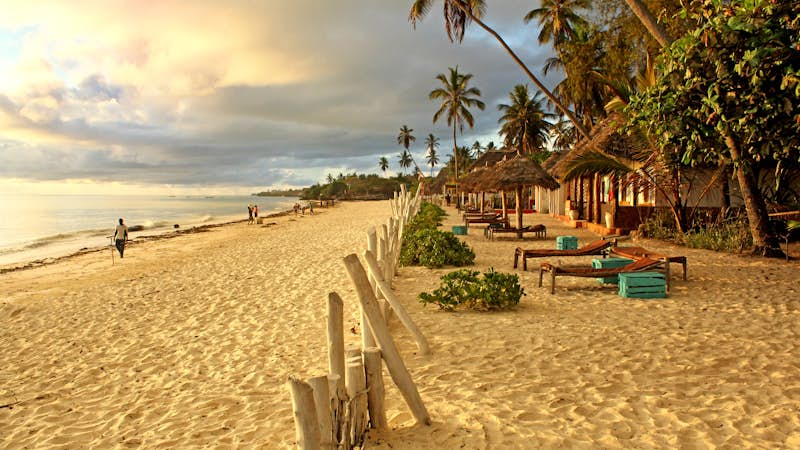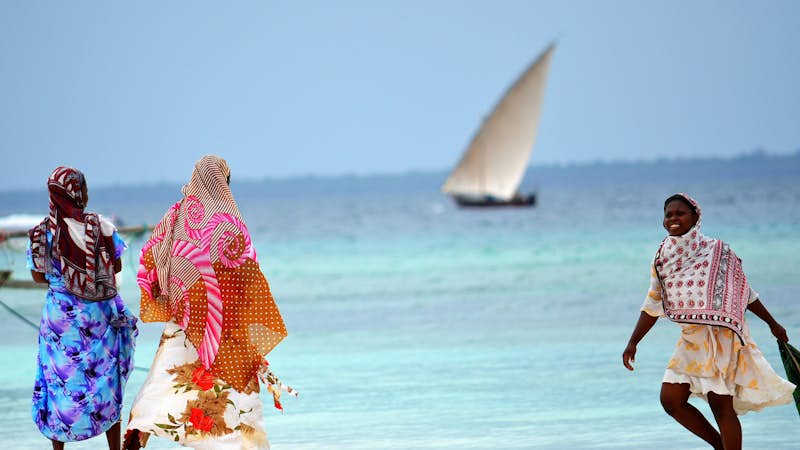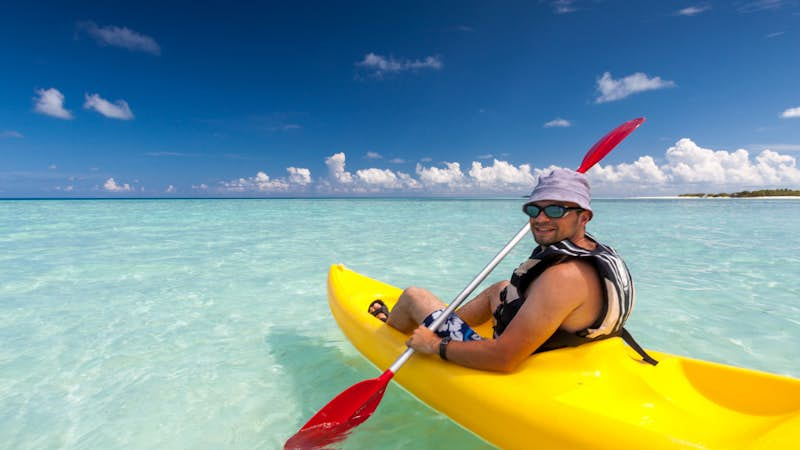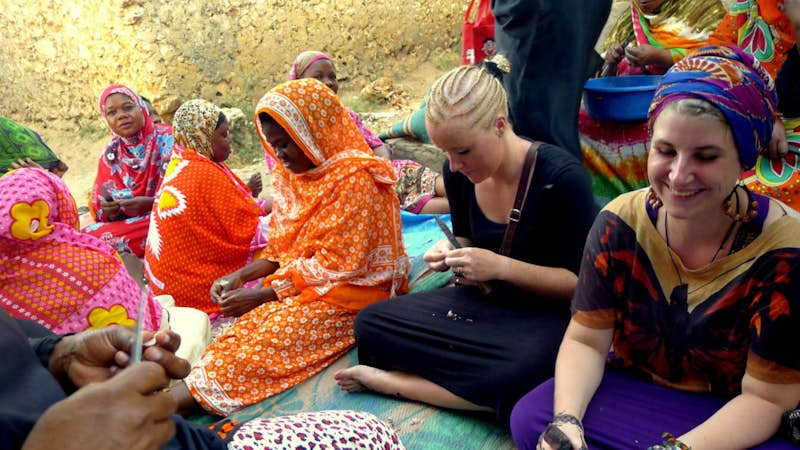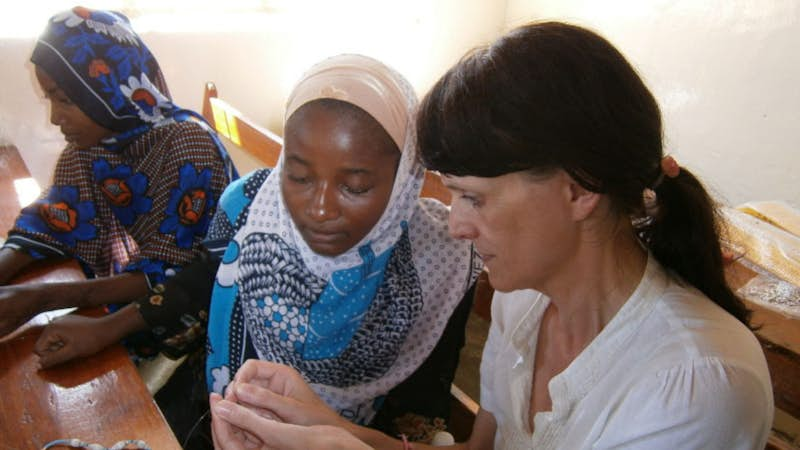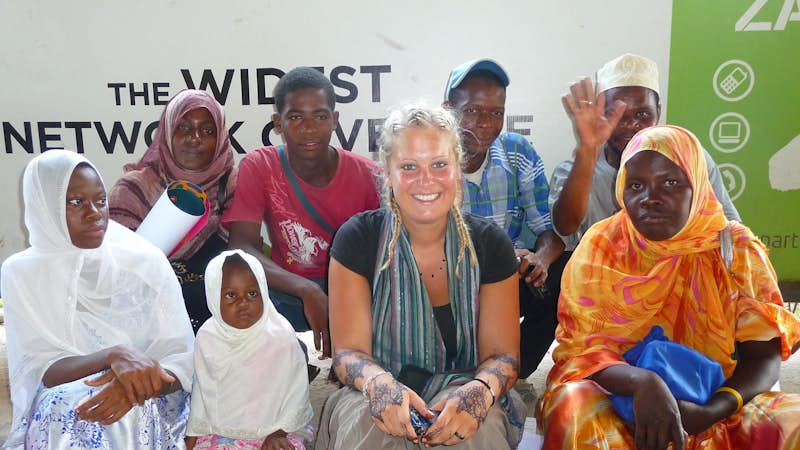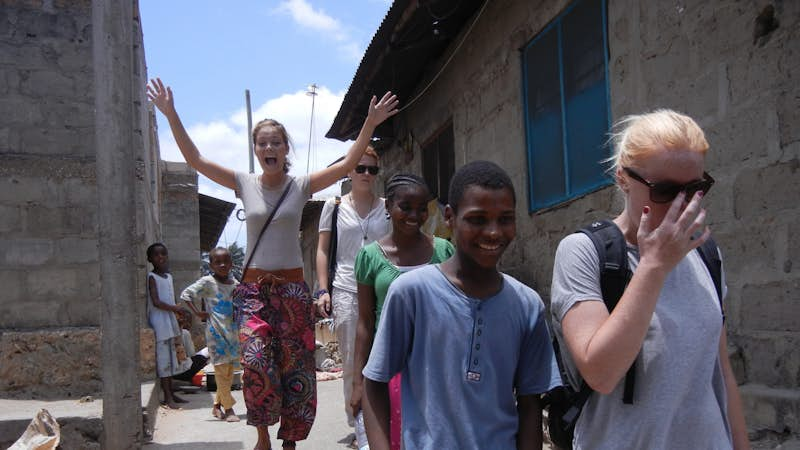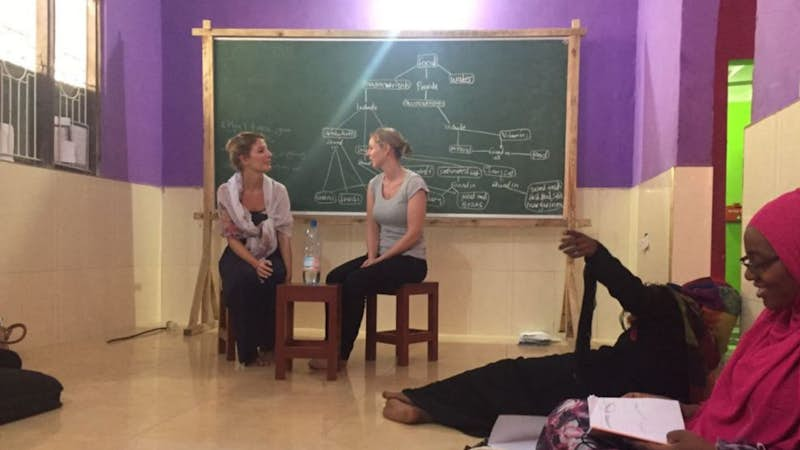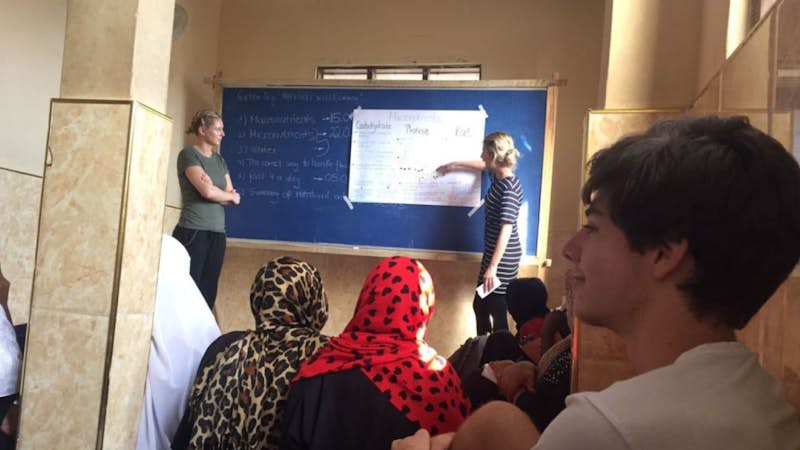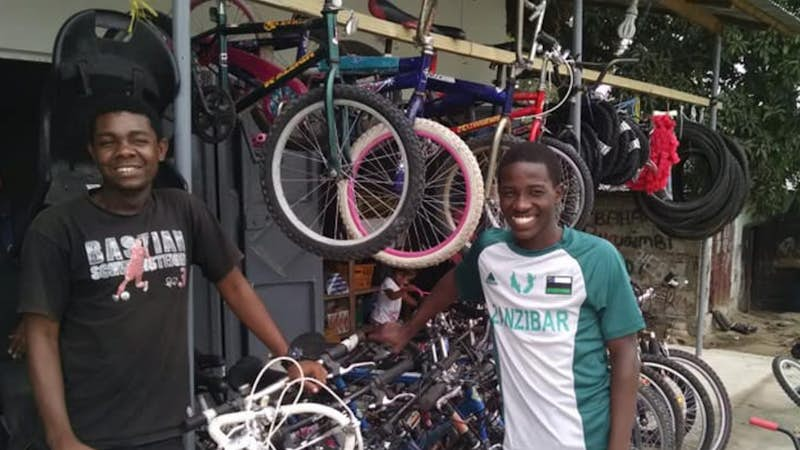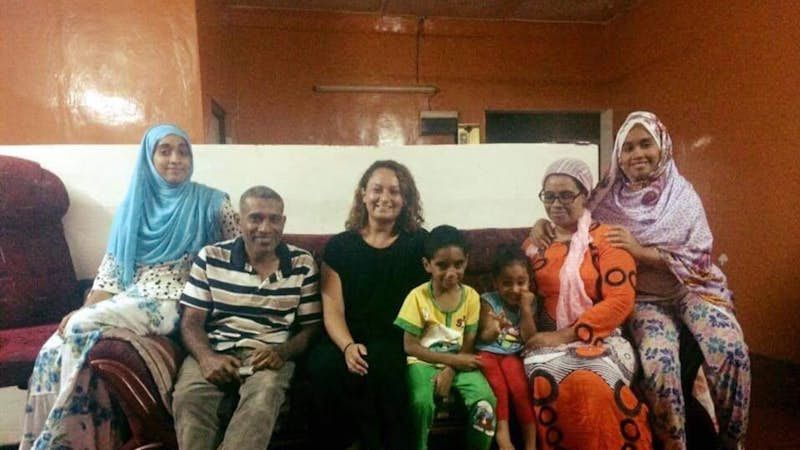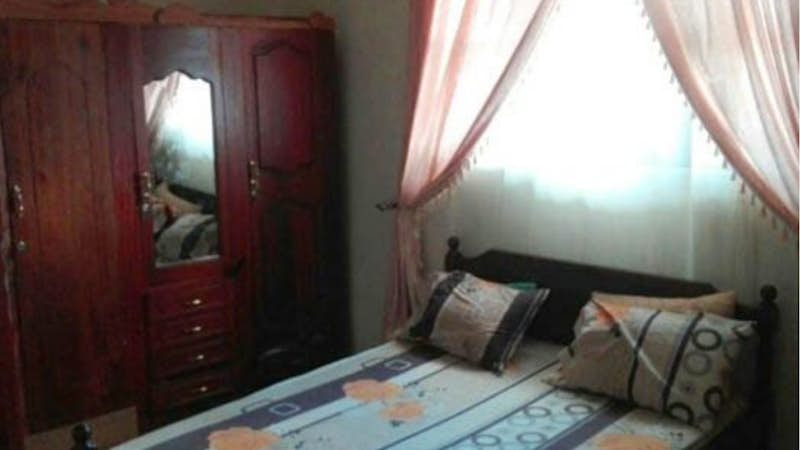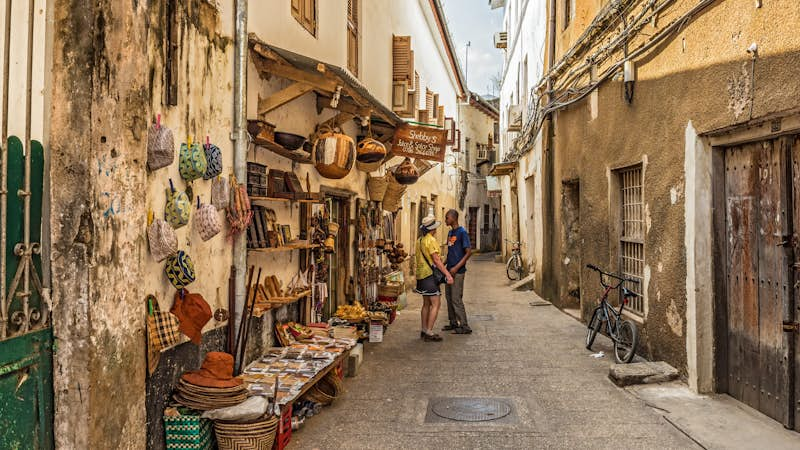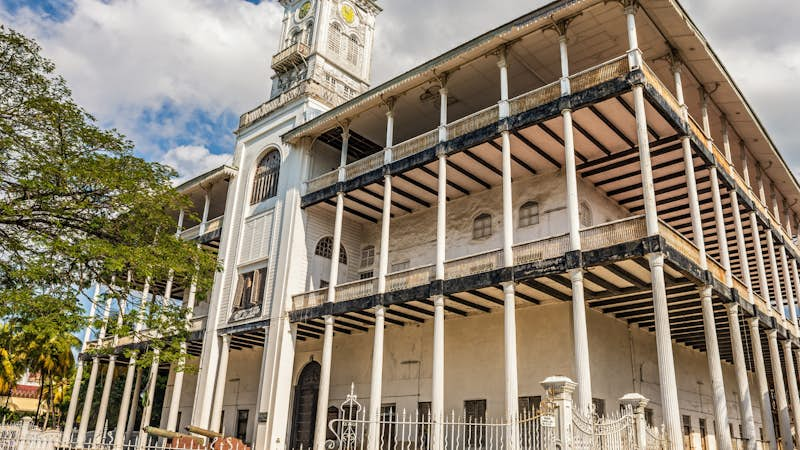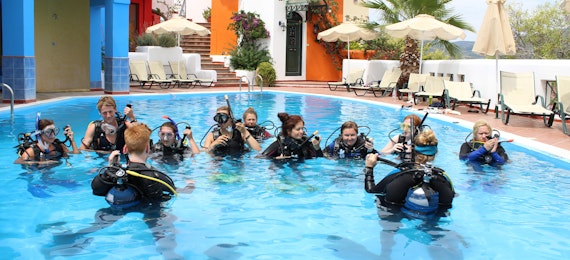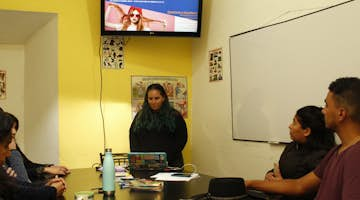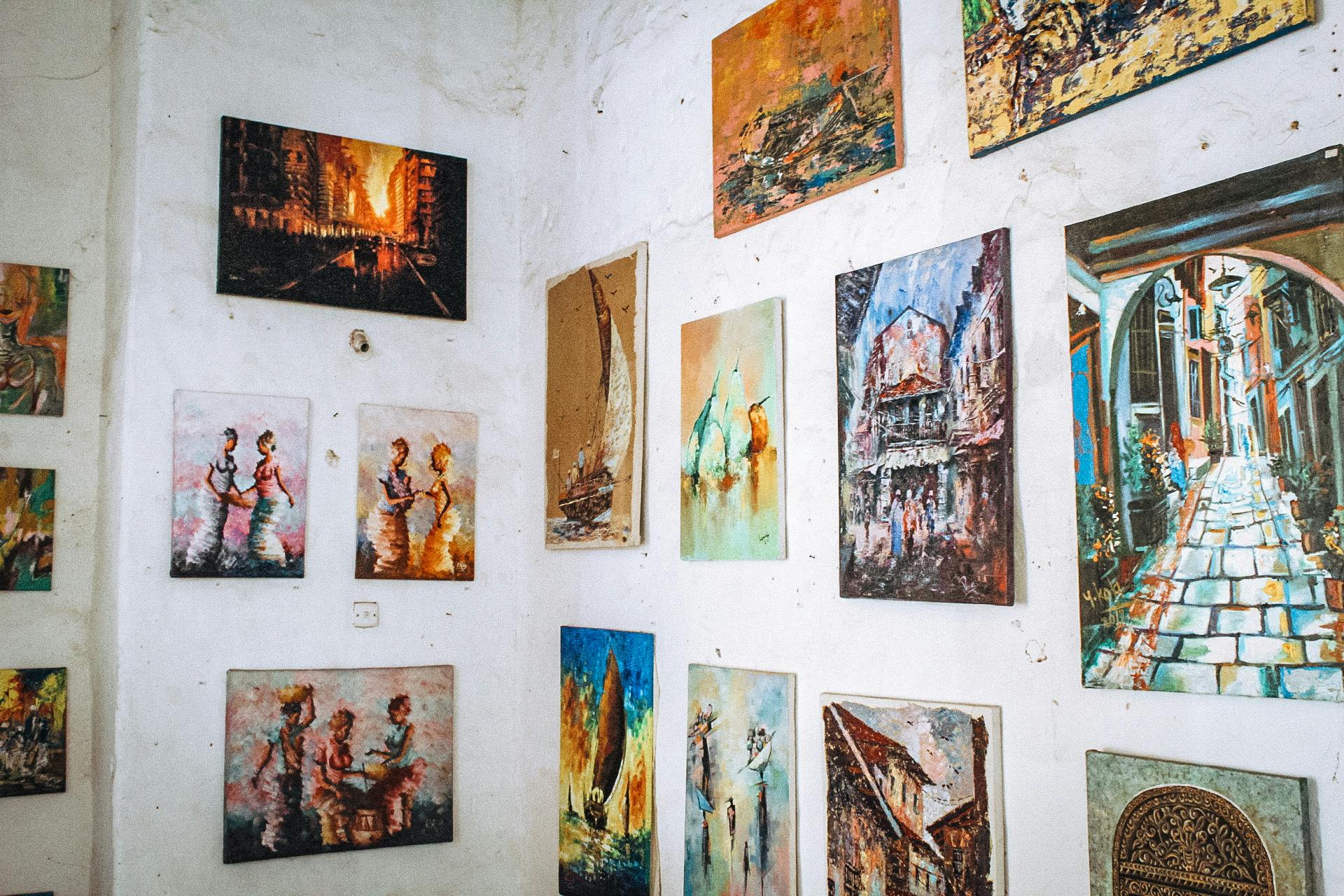
Cultural Arts in Zanzibar
Support local artisans to make quality crafts and provide business advice to help them market and sell their products. Foster craft making skills, wider business and financial understanding, improved English and computer literacy, to build successful ventures and market products with quality packaging, promotion and networking.
Internship Highlights:
- Support the preservation and development of local arts
- Assist artists with income generation
- Liaising within the community to build relationships
- Experience life on Zanzibar, a unique and beautiful African island
Type of host organizations:
- Zanzibar’s Cultural Arts Centre
Internship details
Support local artisans to make quality crafts, and provide business advice to help them market and sell their products. Foster craft making skills, wider business and financial understanding, improved English and computer literacy, to build successful ventures and market products with quality packaging, promotion and networking.
This is an in-country internship, with accommodation and meals provided.
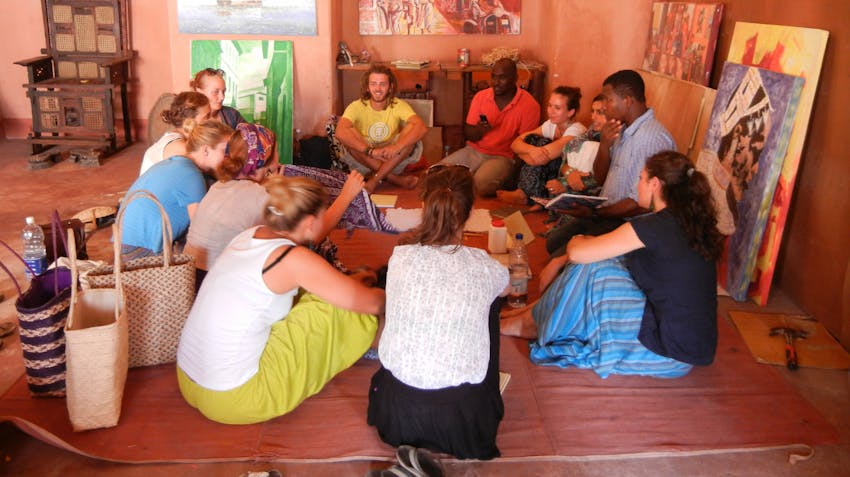
Zanzibar is a colorful and eclectic island off the Tanzanian coast, and its creativity is fostered at the local Cultural Arts Center. Local artisans receive training and support as they look to create and sell their own artwork, and interns can play an important role in working alongside these locals to encourage their development.
Cultural Arts interns are placed in the Cultural Arts Center that provides training in ethical production, craftwork and art. This not only benefits local trainees, but boosts the local economy by improving the quality of local works, and the value they can receive when they’re sold to wholesalers or in local markets. Typical crafts that are produced include baskets, textiles, weaving, soaps, carvings and jewelry.
Interns can provide further support to artisans with business development, assisting with financial management and retail planning. Vocational support is highly valued, and helping locals to develop their English language or computer skills provides another layer of skills that adds to their ability to sell their own products and build their business.
Interns can also work with artisans to better market their products. You can help with product or packaging design, develop promotional material and innovate other solutions to build awareness and encourage sales. Market research can also play a role in understanding new or improved opportunities, including building community relationships.
In all cases, interns should expect that the first week of your experience will focus on settling in and gaining some introductory knowledge, as you will not “hit the ground running”. Rather, you should start with learning about the placement to gain an understanding of what you can build upon, develop, learn, and contribute. Ensure that you ask questions and provide feedback during the introductory period, so that your supervisor understands how you’re progressing. This will help them to better understand important details, such as how quickly you learn, what you find challenging, what you find interesting, etc.
Understand and expect that individual internship experiences vary, as the specific placement that you’re assigned will depend on review of your resume and your current level of studies and experience. Therefore, if you’re at a more introductory level, you should reasonably expect a more introductory internship. Likewise, if you’re interning for a shorter duration, you will have a different experience from someone who is interning for a longer duration. Placement preferences are considered but always subject to availability.
Career Benefits
Cultural Arts interns learn from a qualified and experienced supervisor, and can be involved in:
-
Assisting local artisans to make crafts for sale
-
Teaching financial management, English language or computer skills
-
Developing retail plans
-
Product marketing
-
Sustainable packaging design
-
Developing promotional material
-
Market research
-
Network and relationship building
Professional development opportunities:
-
Learn about the arts and handicrafts business at a tourism destination
-
Improve your skills in design, packaging and marketing
-
Get training experience working with local artisans and artists
-
Gain practical skills and boost your employability, with guidance from Intern Abroad HQ’s Experiential Learning Curriculum to support your learning and cultural intelligence.
Zanzibar photo gallery

Academic credit available for all internships
Gain course credit from your college or university and meet your academic requirements when completing an internship abroad or remote internship program with Intern Abroad HQ.
Learn about course creditProgram fees
It’s free to apply for this internship. Once we have reviewed your suitability and accepted you onto this program, you’ll need to pay a deposit of US$499 to confirm your place. The remaining balance of your Program Fee (less your initial US$499 deposit payment) will be due no less than 60 days before your internship start date.
Duration |
Program Fee (USD) |
|---|---|
| 2 weeks | $1,479 Equivalent to $105 /day |
| 3 weeks | $1,686 Equivalent to $80 /day |
| 4 weeks | $1,998 Equivalent to $71 /day |
| 5 weeks | $2,244 Equivalent to $64 /day |
| 6 weeks | $2,412 Equivalent to $57 /day |
| 8 weeks | $2,748 Equivalent to $49 /day |
| 10 weeks | $3,134 Equivalent to $44 /day |
| 12 weeks | $3,470 Equivalent to $41 /day |
| 16 weeks | $4,252 Equivalent to $37 /day |
| 20 weeks | $4,924 Equivalent to $35 /day |
| 24 weeks | $5,596 Equivalent to $33 /day |
- Airport pick-up
- Daily breakfast, lunch and dinner
- Accommodation
- 24/7 in-country support
- Program orientation
- Dedicated support before, during, and after your internship
- In-country guidance for social and tourist activities
- Sourcing and securing your internship placement
- Personalization of your internship plan
- Coaching from your supervisor
- Documented portfolio of your experiential learnings
- Academic credit facilitation
- International reference letter
- Certificate of Internship Completion
- All in-country transportation
- Visa (if required), flights, travel insurance (mandatory), vaccinations, criminal background check
- Transfer back to the airport at the end of your internship program
- Personal spending money for snacks, drinks, public transport, laundry, and leisure activities during your free time.
- A deposit of $499 (approximately 499) is required to secure your internship
- It is important to note that internships in Zanzibar require all participants to obtain a visa. We advise Zanzibar interns to purchase and obtain this in-country (at the airport, on arrival in Zanzibar). Interns receive details in advance, which outline instructions for this process (depending on your specific internship details), along with anticipated costs. Some interns are additionally required to purchase a Work Permit (US$400) in-country. Please note that the requirements and costs for such visas and/or permits are outside the control of Intern Abroad HQ and are subject to change without notice.
- Balance of your Program Fee is due 60 days before your internship start date.
- All payments attract a 5% transaction fee to cover international banking fees and currency charges.
- Terms and Conditions apply.
Free-time experiences & tours in Zanzibar
Take your internship to the next level with Intern Abroad HQ's affordable activity and tour add-ons in Zanzibar! Explore your options below and learn how to book them once you've been accepted onto an internship program.
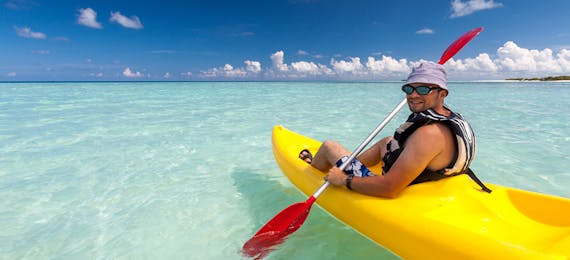
Spend a weekend adventuring in the Jozani forest, kayaking through mangroves and visiting a cultural village.
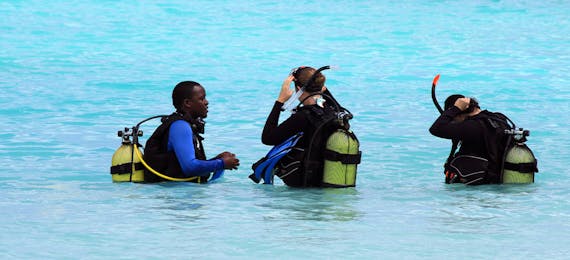
Complete your first scuba diving certification while interning, which opens the door to a lifetime of underwater adventures!
Swahili Language Lessons
Swahili, also known as Kiswahili, is spoken throughout Zanzibar and it is the national language of Tanzania. (English is only the official language of the High Court). While fluency in Swahili is not a requirement to intern in Zanzibar, learning some of the local language can help enhance your cultural experience and immersion. Starting with a few lessons can help you learn some basics to demonstrate common courtesy. A maximum of ten hours per week are recommended. Lessons are typically conducted individually, but may be shared between 2-3 other participants of the same level (although, the number of participants per lesson does not affect the cost). For more information about language lessons, interns may speak directly to the local team in-country.
Arrival and Orientation
Internships in Zanzibar begin every Monday and interns may choose to spend a minimum of 2 weeks, up to a maximum of 12 weeks. Exceptions to start date availability may occur when start dates are closed due to public holiday / festival disruptions or if the program has already reached capacity.
Airport pick up and accommodation are included in the Program Fee, as well as return transportation to the airport in Zanzibar at the completion of the internship. Interns are required to arrive on the Sunday before their Monday start date. In order to receive this airport pick up, interns fly into the Abeid Amani Karume International Airport in Zanzibar (airport code: ZNZ). Note that all participants are advised not to book flights until they have first registered to confirm their internship placement.
Upon arrival, interns will be met, greeted, and transferred to the accommodation, to settle in and rest. Accommodation is covered from the Sunday night of the internship start date. The last night of the accommodation is the Saturday night of the final week, leaving interns free to depart on the Sunday.
Orientation typically takes place on the Monday start date and covers important details for your internship, including introductions, information about culture, customs, rules, expectations, safety, language lessons, cultural excursions, and more. For participants who will be interning within Zanzibar Town / Stone Town, a walking tour is also covered. Tourism & Hospitality interns, who may be based within popular beach areas, such as Nungwi, Kendwa, Kiwengwa, Paje, Jambiani and Michamvi, will receive a local orientation that’s relevant to their area.
If you are planning to spend time independently in Zanzibar prior to the commencement date of your internship, and will not require an airport pick up, then you’ll be required to come directly to the local team’s office in Zanzibar Town / Stone Town for meet and greet on your start date. From there, you will be guided to your home-stay accommodation.
Visa Requirements
It is important to note that internships in Zanzibar require all participants to obtain a visa. We advise Zanzibar interns to purchase and obtain this in-country (at the airport, on arrival in Zanzibar). Interns receive details in advance, which outline instructions for this process (depending on your specific internship details), along with anticipated costs. To cover the cost of the visa sufficiently, most interns need to budget US$50-100. However, Tourism & Hospitality interns will need to budget US$250, for the correct visa.
Some interns are additionally required to purchase a Work Permit or Trainee Permit in-country. This is a government requirement. It applies to:
- Cultural Arts interns - you will need to cover the cost of a Work Permit in Zanzibar. Please budget US$400 for this.
- Social Work & Education interns - you will need to cover the cost of a Work Permit in Zanzibar. Please budget US$400 for this.
- Tourism & Hospitality interns - you will need to cover the cost of a Work Permit in Zanzibar. Please budget US$400 for this.
If this is required then it will be arranged with you during the orientation, as coordinators will assist you at the Zanzibar Labour Office. Please note that the requirements and costs for such visas and/or permits are outside the control of Intern Abroad HQ and are subject to change without notice.
Accommodation and WiFi
Most interns in Zanzibar are hosted in various homestay accommodations, within Zanzibar Town / Stone Town. The exception to this is that Tourism & Hospitality interns can expect to be located in closer proximity to their internship. For example, locations usually include the popular beach destinations of Zanzibar, such as Nungwi, Kendwa, Kiwengwa, Paje, Jambiani and Michamvi. In this case, accommodation may be located on the grounds of the internship placement (e.g. on the grounds of the hotel), at external guest houses/lodges, or with a host family at the respective village.
For the comfort of our interns, the host families that we work with (within Zanzibar Town / Stone Town) provide a higher standard of living, compared to other typical family homes on the island. They often have access to domestic staff, such as a cook, drivers, nannies, gardeners, housekeepers, and security guards. Employees of the host family usually have their own separate accommodation, provided for them on the same property as the main family home. Typically, these host families have older children who are being educated abroad. Therefore, they are able to comfortably accommodate international interns in Zanzibar while their own children are studying internationally. The household may have younger children who have not yet reached a higher level of education. Interns can expect to have their own bedroom. The meals which are included are typically generous, having been prepared and served by a cook.
Note that accommodation is unlikely to provide WiFi. Unlimited internet plans are typically unavailable in Zanzibar and connection must be paid for by the gigabyte. However, all interns receive a local SIM card for use at their orientation, which initially includes 3 GB of data traffic. Top-up vouchers can be purchased as need be and they are relatively inexpensive.
Meals
Internships in Zanzibar include three meals per day, seven days per week, served at the accommodation. The culinary traditions of Zanzibar have been influenced by many nationalities, including Indian, British, Portuguese, Arab, Bantu, and even Chinese. Therefore, typical dishes may reflect a fusion of styles. Rice is a staple, which can be cooked with an array of spices (Zanzibar is the island of spice, after all!) Cinnamon, ginger, cumin, chilli, cardamom, nutmeg and cloves may be used to flavor rice, meat, fish and curry dishes. The famous spice rice of Zanzibar is called “Pilau”. In addition to cooked meals, fresh vegetables and fruits are available and you can also find a wide variety in the local markets. Host families are accustomed to accommodating interns who are vegetarians and can ensure meals are prepared appropriately. Some restaurants will also offer vegetarian dishes. Please be sure to let us know of any specific dietary requirements that you have in advance (i.e. allergies and intolerances), so that we may ensure your hosts are aware and make recommendations to you accordingly.
Essential country information
| Capital | Zanzibar City |
| Population | 1.304 million |
| Languages | Swahili, Arabic, English |
| Currency | Tanzanian Shilling (TZS) |
| Time zone | UTC+03:00 |
Weather and climate:
Being near the equator, the islands of the Zanzibar Archipelago are warm year-round, and the temperature doesn’t vary too much throughout the year. The usual highs are between 85°F / 91°F (30°C / 33°C) and the usual lows range between 70°F and 76°F (21°C / 24°C). The hotter times of the year are typically from December through March. From July through October, the temperatures are more comfortable. The wetter season usually begins in late November, leading up to the wettest month of the year, which is April. After April, the dry season begins again around mid to late May.
